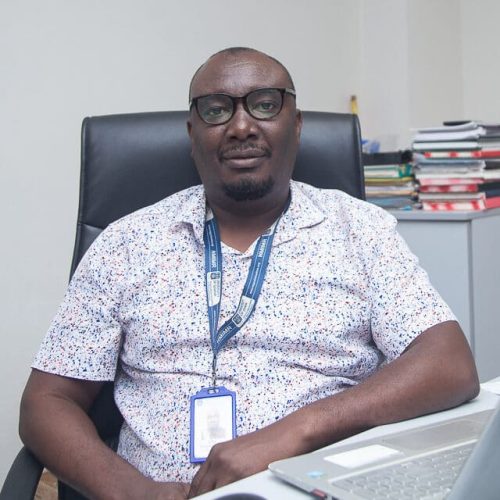Malaria vaccine antigen discovery


Malaria infection remains a significant and persistent threat and causes high levels of morbidity and mortality every year. Disease control and prevention requires the use of multiple approaches such as vector control with insecticides, parasite control with effective drugs. Malaria vaccines have been identified as an additional tool for control and prevention but the only licensed vaccine, RTS.S only provides very modest efficacy against severe disease in children. There is therefore an urgent need to develop more effective vaccines. A prominent strategy for malaria vaccine development is to target the pre-erythrocytic stage parasites so they do not progress to the disease-causing blood stages. Parasite antigens that elicit potent T cell responses, especially those that express interferon-Gamma (IFN-ɣ) and granzyme B (GrzB), are very efficient at killing the liver stages of the parasite. Another important consideration in designing antigen-based vaccines is to avoid the limitation that antigen polymorphisms place on the effectiveness of elicited immune responses. We have incorporated in our research strategies that either focus the immune response on conserved immunodominant portions of essential parasite antigens or dilute out the polymorphic portions. Our long-term goal is to identify and characterize HLA class I and II-restricted peptides from essential malaria parasite antigen fragments that are conserved and have the capacity to elicit potent IFN-ɣ and GrzB responses, with the ultimate aim of incorporating these into universally effective multi-epitope malaria vaccines.
- To use a combination of bioinformatics and wet lab procedures to define immunodominant regions of malaria candidate antigens.
- To develop strategies for overcoming the effects of antigen polymorphisms on immune responses to polymorphic malaria antigens
- To experimentally identify and characterize T cell epitopes that are conserved and restricted by globally predominant HLA types for the development of universally effective malaria vaccines.
Our work in this area has so far identified a number of immunodominant peptides in individuals who have a history of natural parasite infections, even in the absence of active infections. We have further shown that some of these immunodominant peptides can be presented by multiple HLA types, and this is highly relevant for the formulation of multi-epitope vaccines with capacity to elicit protective anti-malarial immune responses in a genetically diversity population with many different HLA types. On-going work in our collaborator’s lab now include construction of nanoparticle-based vaccines using the identified epitopes and testing for immunogenicity and efficacy in transgenic mouse models. We have also shown that T cell responses are impacted by amino acid variability in immunodominant epitopes, and this together with HLA diversity need to be carefully considered in the design of universally effective HLA-based multi-epitope vaccines
- Kusi KA, Ofori EA, Akyea-Mensah K, Kyei-Baafour E, Frimpong A, Ennuson NA, Belmonte M, Ganeshan H, Huang J, Amoah LE, Villasante E, Sedegah M (2022). Towards large-scale identification of HLA-restricted T cell epitopes from four vaccine candidate antigens in a malaria endemic community in Ghana. Vaccine. 40:5, 757-764. https://doi.org/10.1016/j.vaccine.2021.12.042.
- Ofori EA, Tetteh JKA, Frimpong A, Ganeshan H, Belmonte M, Peters B, Villasante E, Sedegah M, Ofori MF, Kusi KA (2021). Comparison of the impact of allelic polymorphisms in PfAMA1 on the induction of T Cell responses in high and low malaria endemic communities in Ghana. (2021) 20:367. https://doi.org/10.1186/s12936-021-03900-1
- Nlinwe ONN, Ofori EA, Akyea-Mensah K, Kyei-Baafour E, Ganeshan H, Belmonte M, Peters B, Villasante E, Sedegah M, Kusi KA (2021). Comparative analysis of the ex vivo IFN-Gamma Responses to CD8+ T cell epitopes within allelic forms of PfAMA1 in Subjects with Natural Exposure to Malaria. PLoS ONE 16(9): e0257219.https://doi.org/10.1371/journal.pone.0257219.
- Kusi KA, Aggor FE, Amoah LE, Anum D, Nartey Y, Amoako-Sakyi D, Obiri-Yeboah D, Hollingdale MR, Ganeshan H, Belmonte M, Peters B, Kim Y, Tetteh JKA, Kyei-Baafour E, Dodoo D, Villasante E, Sedegah M (2020). Identification of Plasmodium falciparum circumsporozoite protein-specific CD8+ T cell epitopes in a malaria exposed population. PLoSONE 15(2): e0228177. https://doi.org/10.1371/
- Nlinwe O. N. N., Kusi, K. A., Adu, B. and Sedegah, M. (2018). T-cell responses against Malaria: Effect of parasite antigen diversity and relevance for vaccine development. Vaccine, 36 (17), 2237-2242. doi.org/10.1016/j.vaccine.2018.03.023 (Review paper).
- Kusi KA, Faber BW, Koopman G and Remarque EJ (2018). EDiP: the Epitope Dilution Phenomenon. Lessons learnt from a malaria vaccine antigen and its applicability to polymorphic antigens. Expert Review of Vaccines, 17 (1), 13 – 21. DOI:10.1080/14760584.2018.1411198 (Review paper).
- Ganeshan H, Kusi KA, Anum D, Hollingdale MR, Peters B, Kim Y, Tetteh JKA, Ofori MF, Gyan BA, Koram KA et al (2016). Measurement of ex vivo ELISpot interferon-gamma recall responses to Plasmodium falciparum AMA1 and CSP in Ghanaian adults with natural exposure to malaria. Malar J, 15:55. DOI 10.1186/s12936-016-1098-8
- Anum D, Kusi KA, Ganeshan H, Hollingdale MR, Ofori MF, Koram KA, Gyan BA, Adu Amankwah S, Badji E, Huang J et al (2015): Measuring naturally acquired ex vivo IFN-gamma responses to Plasmodium falciparum cell-traversal protein for ookinetes and sporozoites (CelTOS) in Ghanaian adults. Malar J 14:20. DOI 10.1186/s12936-014-0539-5.



